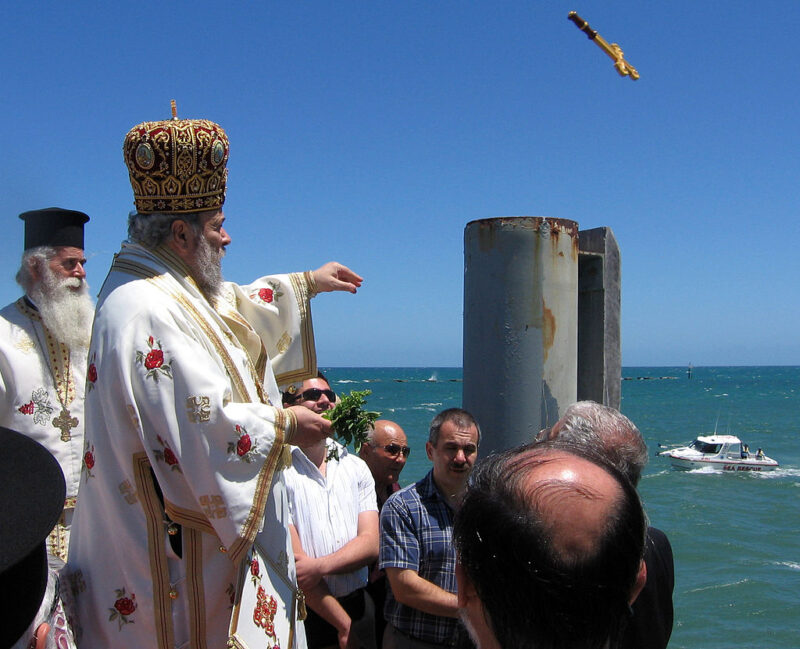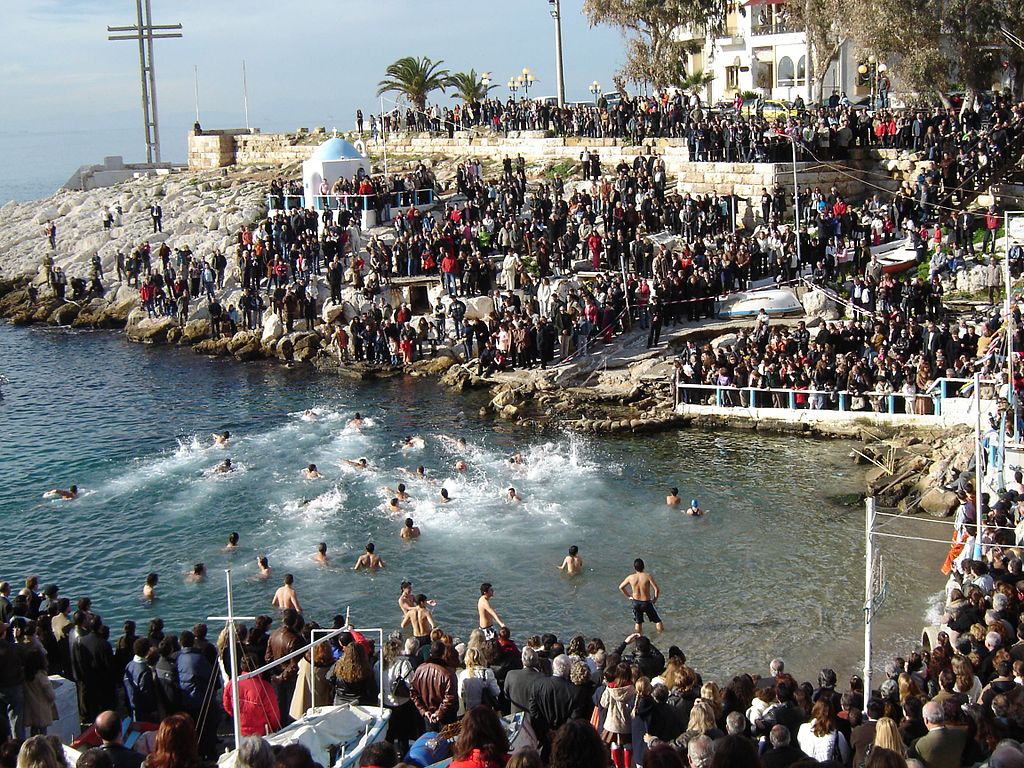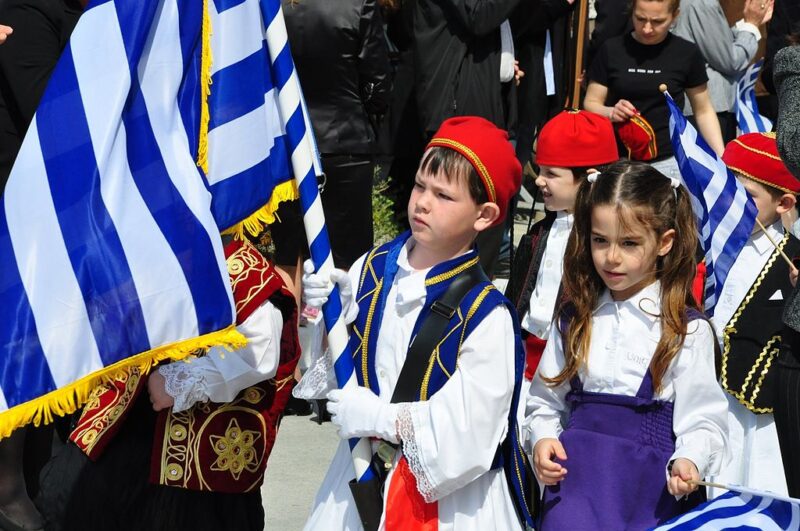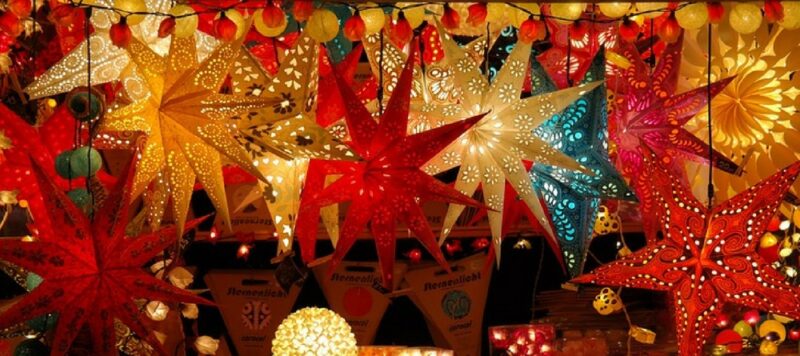January 6, the day of the Epiphany(Theophania in Greek, meaning “Appearance of God”) is an important moment in Greece. It is a very popular ceremony in the Orthodox churches. And Epiphany in Greece has a special significance.
In fact, it’s not the Three Wise Men who are celebrated on Epiphany. The Greeks celebrate the coming of Jesus to Earth and the baptism of the Messiah by Saint John the Baptist in the waters of the Jordan.
What’s more, in Greece we don’t share a galette des rois on January 6. There is, however, an equivalent to the galette des rois, called Vassilopita. This is traditionally eaten on January 1st.
January 6 also marks the end of the twelve days of Christmas, which begin on December 24.
Epiphany in Greece: blessing of the waters and cross ceremony

Every January 6, many people flock to the Greek seaside to witness the famous Cross ceremony and the blessing of the waters.
During this celebration, the Pope blesses the waters of the sea (or river) and throws a cross into the water. Daring men and boys throw themselves into the sea (often very cool at this time of year) to retrieve the cross. Whoever brings it to the surface is blessed by the Pope. And his feat brings him good luck all year round. This tradition is called Ta Fota.
The Pope then blessed the many fishing boats gathered in the harbor.
Epiphany in Greece: a religious and family day
As January 6 is a public holiday, Greek families are accustomed to getting together on this occasion. From the evening before, children sing songs called kalandas .
Then, on the morning of January 6, the religious ceremonies take place. The faithful attend mass and then bring back holy water to purify their homes. Family members also take turns drinking a little of the water. In the villages, the popes come out after the religious ceremony to bless the homes of the faithful.
This day continues with a hearty traditional family meal.
The kallikatzaroi
The pure waters of Epiphany cleanse the world after the Kallikatzaroi.
In popular Greek tradition, the Kallikatzaroi are evil goblins who gnaw at the tree on which the earth rests. They nibble away so much of the tree’s bark that, in the end, the world is in danger of collapsing!
Fortunately, at Christmas, the kallikatzaroi are attracted by the smell of cakes. In this way, they rise to the surface of the earth to devour the little cakes made for them by Greek housewives. Then, once they’ve had their fill, these horrible gnomes go on to wreak havoc in the villages, causing all sorts of little havoc: wine jars opened, sausages nibbled, objects stolen or knocked over.
Finally, after making mischief all through the festive season, on Epiphany day, these naughty Kallikatzaroi finally return underground to continue nibbling the bark of the tree on which the earth is laid. But now, during the Christmas season, the earth tree has had time to reconstitute itself. Then the world is saved! …until the following year.
What to do in Greece on January 6?
January 6 is a public holiday in Greece. Nevertheless, most museums and archaeological sites remain open on this day, including the Acropolis, the Acropolis Museum, the Ancient Greek Agora, the National Archaeological Museum of Athens…
On Epiphany in Greece, you can go to an Orthodox church to attend a celebration. Whether you’re a believer or not, it’s worth attending a liturgy on January 6. Even if you don’t understand Greek, you’ll be lulled by the songs and rituals.
And don’t miss the thousand-year-old spectacle of the ceremony of the cross and the blessing of the waters. Go to the port of Piraeus, the port of Thessaloniki or the nearest port to where you are in order to attend this ritual. It was impressive to see the thousands of anonymous people gathered on the seafront and the young people throwing themselves into the water to retrieve the cross thrown by the Pope. It’s a real highlight. And the atmosphere is very special. You can really feel the fervor of the Greek people.
Laure M.




